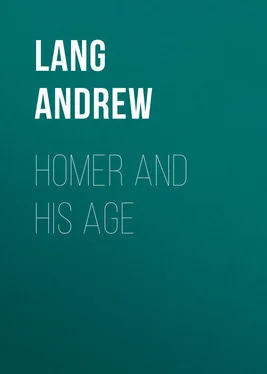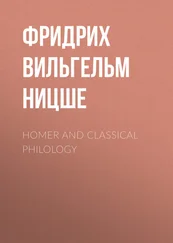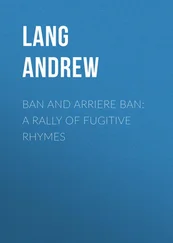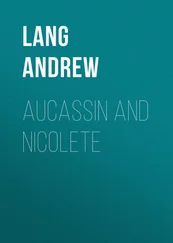Andrew Lang - Homer and His Age
Здесь есть возможность читать онлайн «Andrew Lang - Homer and His Age» — ознакомительный отрывок электронной книги совершенно бесплатно, а после прочтения отрывка купить полную версию. В некоторых случаях можно слушать аудио, скачать через торрент в формате fb2 и присутствует краткое содержание. Жанр: foreign_antique, foreign_prose, на английском языке. Описание произведения, (предисловие) а так же отзывы посетителей доступны на портале библиотеки ЛибКат.
- Название:Homer and His Age
- Автор:
- Жанр:
- Год:неизвестен
- ISBN:нет данных
- Рейтинг книги:5 / 5. Голосов: 1
-
Избранное:Добавить в избранное
- Отзывы:
-
Ваша оценка:
- 100
- 1
- 2
- 3
- 4
- 5
Homer and His Age: краткое содержание, описание и аннотация
Предлагаем к чтению аннотацию, описание, краткое содержание или предисловие (зависит от того, что написал сам автор книги «Homer and His Age»). Если вы не нашли необходимую информацию о книге — напишите в комментариях, мы постараемся отыскать её.
Homer and His Age — читать онлайн ознакомительный отрывок
Ниже представлен текст книги, разбитый по страницам. Система сохранения места последней прочитанной страницы, позволяет с удобством читать онлайн бесплатно книгу «Homer and His Age», без необходимости каждый раз заново искать на чём Вы остановились. Поставьте закладку, и сможете в любой момент перейти на страницу, на которой закончили чтение.
Интервал:
Закладка:
As I suppose Mr. Leaf to insinuate, "fashion" has really nothing to do with the question. People who disbelieve in written texts must, and do, oscillate between the theory of an Homeric "school" and the Wolfian theory that Pisistratus, or Solon, or somebody procured the making of the first written text at Athens in the sixth century – a theory which fails to account for the harmony of the picture of life in the poems, and, as Mr. Monro, Grote, Nutzhorn, and many others argue, lacks evidence.
As Mr. Monro reasons, and as Blass states the case bluntly, "Solon, or Pisistratus, or whoever it was, put a stop, at least as far as Athens was concerned, to the mangling of Homer" by the rhapsodists or reciters, each anxious to choose a pet passage, and not going through the whole Iliad in due sequence. "But the unity existed before the mangling. That this has been so long and so stubbornly misunderstood is no credit to German scholarship: blind uncritical credulity on one side, limitless and arbitrary theorising on the other!" We are not solitary sceptics when we decline to accept the theory of Mr. Leaf. It is neither bottomed on evidence nor does it account for the facts in the case. That is to say, the evidence appeals to Mr. Leaf as valid, but is thought worse than inadequate by other great scholars, such as Monro and Blass; while the fact of the harmony of the picture of life, preserved through four or five centuries, appears to be left without explanation.
Mr. Leaf holds that, in order to organise recitations in due sequence, the making of a text, presenting, for the first time, a due sequence, was necessary. His opponents hold that the sequence already existed, but was endangered by the desultory habits of the rhapsodists. We must here judge each for himself; there is no court of final appeal.
I confess to feeling some uncertainty about the correctness of my statement of Mr. Leaf's opinions. He and I both think an early Attic "recension" probable, or almost certain. But (see' "Conclusion") I regard such recension as distinct from the traditional "edition" of Pisistratus. Mr. Leaf, I learn, does not regard the "edition" as having "made" the Iliad ; yet his descriptions of the processes and methods of his Pisistratean editor correspond to my idea of the "making" of our Iliad as it stands. See, for example, Mr. Leaf's Introduction to Iliad , Book II. He will not even insist on the early Attic as the first written text; if it was not, its general acceptance seems to remain a puzzle. He discards the idea of one Homeric "school" of paramount authority, but presumes that, as recitation was a profession, there must have been schools. We do not hear of them or know the nature of their teaching. The Beauvais "school" of jongleurs in Lent (fourteenth century A.D.) seems to have been a holiday conference of strollers.
CHAPTER IV
We now try to show that the Epics present an historical unity, a complete and harmonious picture of an age, in its political, social, legal, and religious aspects; in its customs, and in its military equipment. A long epic can only present an unity of historical ideas if it be the work of one age. Wandering minstrels, living through a succession of incompatible ages, civic, commercial, democratic, could not preserve, without flaw or failure, the attitude, in the first place, of the poet of feudal princes towards an Over-Lord who rules them by undisputed right divine, but rules weakly, violently, unjustly, being subject to gusts of arrogance, and avarice, and repentance. Late poets not living in feudal society, and unfamiliar alike with its customary law, its jealousy of the Over-Lord, its conservative respect for his consecrated function, would inevitably miss the proper tone, and fail in some of the many {blank space} of the feudal situation. This is all the more certain, if we accept Mr. Leaf's theory that each poet-rhapsodist's répertoire varied from the répertoires of the rest. There could be no unity of treatment in their handling of the character and position of the Over-Lord and of the customary law that regulates his relations with his peers. Again, no editor of 540 B.C. could construct an harmonious picture of the Over-Lord in relation to the princes out of the fragmentary répertoires of strolling rhapsodists, which now lay before him in written versions. If the editor could do this, he was a man of Shakespearian genius, and had minute knowledge of a dead society. This becomes evident when, in place of examining the Iliad through microscopes, looking out for discrepancies, we study it in its large lines as a literary whole. The question being, Is the Iliad a literary whole or a mere literary mosaic? we must ask "What, taking it provisionally as a literary whole, are the qualities of the poet as a painter of what we may call feudal society?"
Choosing the part of the Over-Lord Agamemnon, we must not forget that he is one of several analogous figures in the national poetry and romance of other feudal ages. Of that great analogous figure, Charlemagne, and of his relations with his peers in the earlier and later French mediaeval epics we shall later speak. Another example is Arthur, in some romances "the blameless king," in others un roi fainéant .
The parallel Irish case is found in the Irish saga of Diarmaid and Grainne. We read Mr. O'Grady's introduction on the position of Eionn Mac Cumhail, the legendary Over-Lord of Ireland, the Agamemnon of the Celts. "Fionn, like many men in power, is variable; he is at times magnanimous, at other times tyrannical and petty. Diarmaid, Oisin, Oscar, and Caoilte Mac Rohain are everywhere the {Greek: kaloi kachotoi} of the Fenians; of them we never hear anything bad." {Footnote: Transactions of the Ossianic Society, vol. iii. p. 39.}
Human nature eternally repeats itself in similar conditions of society, French, Norse, Celtic, and Achaean. "We never hear anything bad" of Diomede, Odysseus, or Aias, and the evil in Achilles's resentment up to a certain point is legal, and not beyond what the poet thinks natural and pardonable in his circumstances.
The poet's view of Agamemnon is expressed in the speeches and conduct of the peers. In Book I. we see the bullying truculence of Agamemnon, wreaked first on the priest of Apollo, Chryses, then in threats against the prophet Chalcas, then in menaces against any prince on whom he chooses to avenge his loss of fair Chryseis, and, finally, in the Seizure of Briseis from Achilles.
This part of the First Book of the Iliad is confessedly original, and there is no varying, throughout the Epic, from the strong and delicate drawing of an historical situation, and of a complex character. Agamemnon is truculent, and eager to assert his authority, but he is also possessed of a heavy sense of his responsibilities, which often unmans him. He has a legal right to a separate "prize of honour" (geras) after each capture of spoil. Considering the wrath of Apollo for the wrong done in refusing his priest's offered ransom for his daughter, Agamemnon will give her back, "if that is better; rather would I see my folks whole than perishing." {Footnote: Iliad , I. 115-117.}
Here we note points of feudal law and of kingly character. The giving and taking of ransom exists as it did in the Middle Ages; ransom is refused, death is dealt, as the war becomes more fierce towards its close. Agamemnon has sense enough to waive his right to the girlish prize, for the sake of his people, but is not so generous as to demand no compensation. But there are no fresh spoils to apportion, and the Over-Lord threatens to take the prize of one of his peers, even of Achilles.
Thereon Achilles does what was frequently done in the feudal age of western Europe, he "renounces his fealty," and will return to Phthia. He adds insult, "thou dog-face!" The whole situation, we shall show, recurs again and again in the epics of feudal France, the later epics of feudal discontent. Agamemnon replies that Achilles may do as he pleases. "I have others by my side that shall do me honour, and, above all, Zeus, Lord of Counsel" (I. 175). He rules, literally, by divine right, and we shall see that, in the French feudal epics, as in Homer, this claim of divine right is granted, even in the case of an insolent and cowardly Over-Lord. Achilles half draws "his great sword," one of the long, ponderous cut-and-thrust bronze swords of which we have actual examples from Mycenae and elsewhere. He is restrained by Athene, visible only to him. "With words, indeed," she says, "revile him … hereafter shall goodly gifts come to thee, yea, in threefold measure…"
Читать дальшеИнтервал:
Закладка:
Похожие книги на «Homer and His Age»
Представляем Вашему вниманию похожие книги на «Homer and His Age» списком для выбора. Мы отобрали схожую по названию и смыслу литературу в надежде предоставить читателям больше вариантов отыскать новые, интересные, ещё непрочитанные произведения.
Обсуждение, отзывы о книге «Homer and His Age» и просто собственные мнения читателей. Оставьте ваши комментарии, напишите, что Вы думаете о произведении, его смысле или главных героях. Укажите что конкретно понравилось, а что нет, и почему Вы так считаете.












